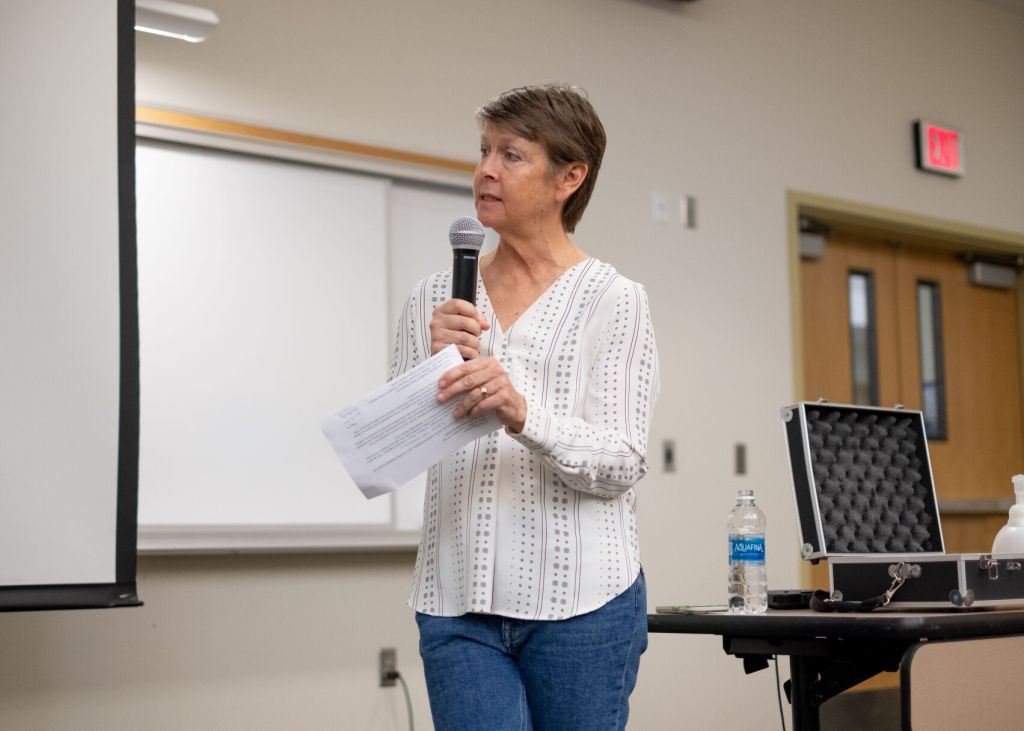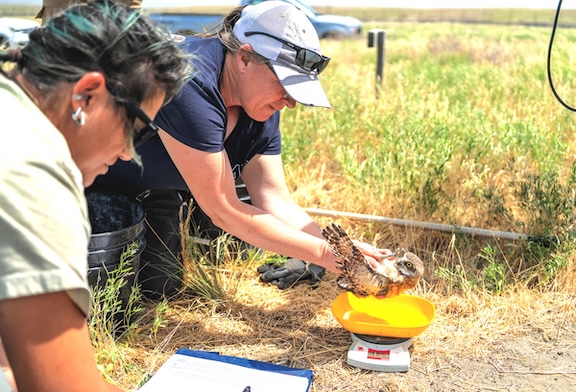Eastern Oregon Forum highlights mental health in wake of pandemic
Published 5:45 am Friday, March 15, 2024

- Kathryn Brown, EO Media Group vice president, moderates the Eastern Oregon Forum on rural post-pandemic mental health March 12, 2024, at Blue Mountain Community College, Pendleton.
PENDLETON — This season’s final assembly of the Eastern Oregon Forum examined the effects of the coronavirus pandemic on mental health and social issues.
Trending
Pendleton Police Chief Charles Byram, Julie Smith, director of Special Programs for the Pendleton School District, and Emily Arnold, licensed clinical social worker and owner of Eastern Oregon Trauma Center in Pendleton, served as panelists while EO Media Group Vice President Kathryn Brown moderated the event Tuesday evening, March 12, at Blue Mountain Community College in Pendleton.
The three panelists are working in the community to identify — and treat or refer for further treatment — residents of all ages and economic backgrounds whose lives were complicated by the pandemic.
The panelists provided layers of information, some of it startling, painting an intriguing snapshot of how the pandemic affected lives in Pendleton and beyond.
Trending
“The majority of the individuals we are interacting with in the criminal justice system more likely than not have a component of behavioral or mental health issues that we have to deal with on a day-to-day basis,” Byram said.
“We are seeing younger and younger students with very significant mental health needs, as they’re showing up in their behaviors and expressions in school,” Smith said. “We have had kindergartners who tell us they want to die, and that’s incredibly hard to help a child at the age of 5, that they don’t want to live anymore.”
She said the school district tries to understated what children might need to help connect that family and those youth to services.
“We try to do that as early as possible, but there really is a dearth of early childhood providers of mental health,” Smith said.
The panelists generally charged the pandemic, and the mandatory isolating measures adopted to protect the public, as the genesis of many cases of mental and social disorders.
“I think more than anything, the level of isolation that people experienced was very harmful,” Arnold said. “I think that was a collective trauma that we experienced, not to mention the level of fear we were experiencing.”
Arnold said some parents could not work from home and had to go out to work, while children were confined to the house.
“Stressed-out people were maybe using more substances because of the high level of stress we were feeling across the board,” she said. “Children were not getting the social emotional learning that happens in schools. All those things are continuing to have a ripple effect now.”
Byram, the police chief, said domestic violence calls skyrocketed in the first year of the pandemic.
“Usually a component of drugs, alcohol and/or mental health, or a combination thereof are involved,” he said. “So it’s more time at home with more substances, and more time to rub each other wrong.”
The panel agreed mental health services and facilities in Eastern Oregon are scant.
“I think for the country as a whole and for the state of Oregon, is how unprepared we are to actually take care of our most vulnerable population when things like this happen and resources are shut down,” Byram said. “Those individuals are still here and they don’t go away.”









